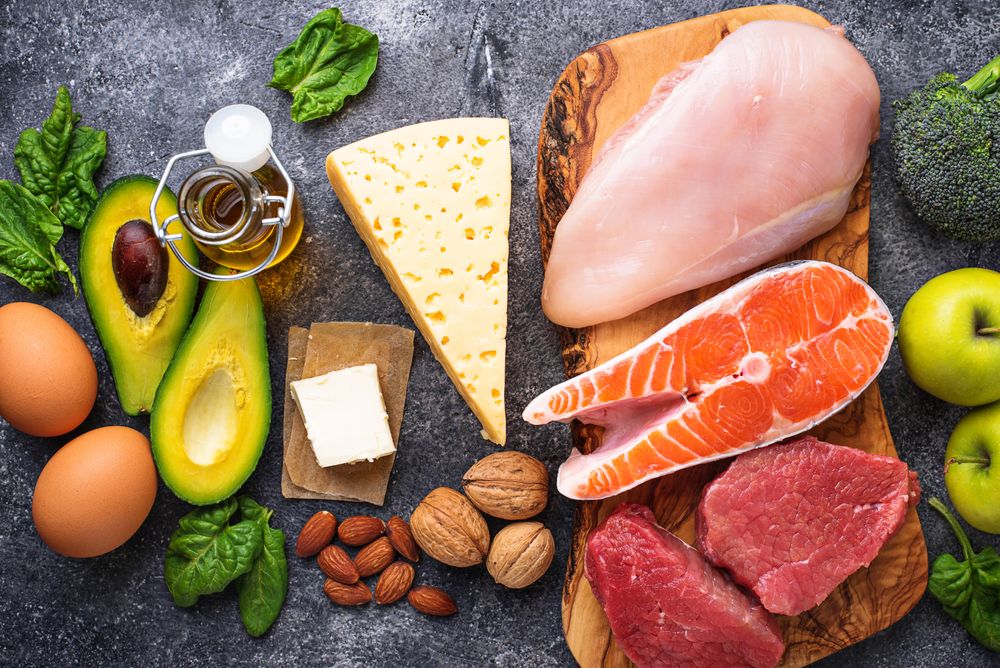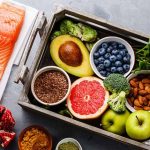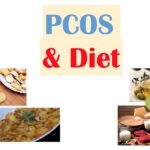High Calorie Foods for Weight Gain
High Calorie Foods for Weight Gain – Those who have a fast metabolism, athletes trying to gain muscle, and people recuperating from illness may find it difficult to gain and lose weight. Although losing weight is frequently the main goal in the health and fitness industry, healthily gaining weight is just as crucial to general well-being. The energy and nutrients required to develop muscle, sustain energy levels, and support body processes are found in high-calorie foods, which are vital to this process. If you are looking for High Calorie Foods for Weight Gain, then no need to look further than our blog. Here in this blog, you will get all the important information regarding High Calorie Foods for Weight Gain.
High-calorie Foods for Weight Gain
Rice
When it comes to foods high in calories, rice seems to be a practical and reasonably priced carbohydrate source, making it an important component of the overall eating plan for weight gain. Rice has the benefit of having a high-calorie density, which makes it possible to consume a significant quantity of calories and carbohydrates in one meal. This may be especially helpful if you have trouble feeling hungry or full easily.
Cheese
Cheese has a lot of nutrients and calories; one slice has about 113 calories. Cheese promotes bone health and muscular growth since it is high in protein, good fats, and vital minerals like calcium. Due to its versatility, which allows it to be used for salads, pasta meals, and sandwiches, and enjoyed as a snack with crackers, it is a popular choice for weight gain. Cheese enhances the flavor and nutritional value of a wide variety of foods, and it comes in a variety of varieties.
Walnuts
A nutrient-dense snack, walnuts have about 185 calories per ounce. They include a lot of heart- and brain-healthy lipids, including omega-3 fatty acids. In addition, walnuts include fiber, protein, and important minerals and vitamins like vitamin E and magnesium. Delicious and adaptable, they can be cooked with or without salad dressings, cereals, baked products, or other dishes. Walnuts are a great complement to any diet because of their abundance of nutrients and delicious flavor.
Whole Milk
A glass of whole milk has roughly 150 calories and is high in nutrients. It’s a great source of calcium, vitamin D, and high-quality protein—all of which are necessary for strong bones and the development of muscle. The good fats in whole milk promote both weight growth and general wellness. Its adaptability makes it a great complement to any diet because it can be eaten on its own, blended into smoothies, baked, or used as the foundation for healthy shakes.
Yogurt
With about 150 calories per cup, yogurt—especially full-fat yogurt—is a nutrient-dense food. It is high in probiotics, calcium, and protein, all of which boost immune function and promote healthy digestion. Yogurt is a tasty and versatile food that may be eaten on its own, combined with nuts and fruits, added to smoothies, or used as a foundation for dips and dressings. It is a great complement to a balanced diet because of its creamy texture and nutritional advantages.
Dates
With roughly 277 calories per 100 grams, dates are a very nutrient-dense and calorie-dense fruit. They are abundant in fiber, natural carbohydrates, and vital nutrients like vitamin B6, potassium, and magnesium. Dates’ high fiber content promotes digestive health and provides a rapid energy boost. They are a great complement to a balanced diet because they are sweet and versatile, and they may be eaten on their own, in smoothies, baked, or added to savoury foods.
Oatmeal
A cup of cooked oatmeal has roughly 150 calories, making it a high-calorie, nutrient-dense food. It is abundant in fiber, complex carbs, and vital elements like B vitamins, iron, and magnesium. The high fiber content, especially beta-glucan, promotes digestion, heart health, and long-lasting energy. Because of its versatility and ability to be topped with fruits, nuts, seeds, or honey, oatmeal is a tasty and nourishing breakfast choice that promotes general health and well-being.
Sweet Potatoes
With around 112 calories per medium-sized potato, sweet potatoes are a nutrient-dense but high-calorie food. They include a lot of fibre, complex carbs, and important vitamins like A, C, and numerous B vitamins. Important nutrients like manganese and potassium are also found in sweet potatoes. Whether baked, mashed, roasted, or added to soups and stews, their inherent sweetness and adaptability make them simple to use in a variety of recipes. Their nutritional advantages boost vitality and general wellness.
Red Meat
A 3-ounce portion of red meat contains about 250 calories, making it a nutrient-dense food. In addition to having important elements like iron, zinc, and vitamin B12 that support general health and energy levels, it is abundant in high-quality protein, which is necessary for muscle growth and repair. Red meat is adaptable and may be cooked in a variety of ways, including stewing, roasting, and grilling. You can get balanced nutrition and successful weight growth by including red meat in your diet.
Avocado
An avocado has about 240 calories and is a fruit that is high in nutrients. It promotes heart, digestive, and skin health and is high in fiber, important vitamins like E and C, and good monounsaturated fats. Additionally, avocados include potassium and folate, which are good for your health. They are tasty and adaptable; they can be eaten on toast or added to salads, sandwiches, and smoothies. A balanced diet would be incomplete without avocados because of their creamy texture and many health advantages.
Conclusion
So, here we listed all the High-Calorie Foods for Weight Gain. If you are looking for a dietitian who gives you a proper diet plan for weight gain then no need to look further than Dietitian Shubhra. She will give you a proper diet plan according to your body’s requirements. We hope this listed information will be helpful in your research.
Frequently Asked Questions (FAQs)
What are high-calorie foods?
High-calorie foods are those that contain a large amount of energy per serving. They are often rich in fats, carbohydrates, or proteins.
Why are high-calorie foods important for weight gain?
To gain weight, you need to consume more calories than you burn. High-calorie foods can help you achieve this surplus.
Can I gain weight by only eating high-calorie foods?
No. While high-calorie foods can contribute to weight gain, a balanced diet is essential. Ensure you’re getting enough nutrients like vitamins and minerals.





